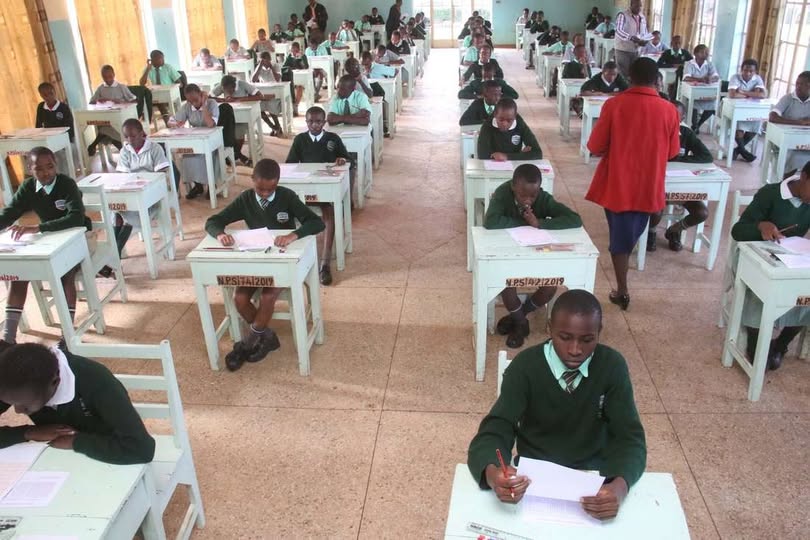Rehearsal time is a critical phase in preparing for KPSEA, KJSEA, and KCSE examinations. It provides an opportunity for learners, teachers, and examination officers to simulate actual examination conditions, ensuring that everyone involved is well-prepared and confident.
During this period, teachers play a crucial role in guiding learners and managing the examination process. Before rehearsals begin, teachers should organize all learning materials, including textbooks, charts, and reference resources. They must also make sure learners are aware of the rehearsal timetable.
Teachers should explain the structure of the examinations, highlighting time allocation for different sections and emphasizing the importance of following examination rules. During rehearsals, teachers supervise learners closely, giving clear instructions, monitoring time, and ensuring that each learner completes their paper within the allocated period.
Teachers also arrange the examination environment properly, making sure desks and seating are organized and that learners have the necessary writing materials, such as pens, pencils, and calculators where allowed. After rehearsals, teachers collect all answer scripts carefully, provide constructive feedback, highlight areas that need improvement, and report any irregularities to the headteacher or examination officer.
Learners are expected to take rehearsals seriously. Before the rehearsal, they should revise key topics, practice past papers, and ensure they have all required stationery. During the rehearsal, learners should arrive on time, settle quietly, read all instructions carefully, and work independently, avoiding any form of cheating.
Learners must manage their time effectively to attempt all questions, write clearly, and organize their answers properly. After the rehearsal, they should submit their scripts promptly and reflect on areas of weakness, using the experience to guide further revision and build confidence for the actual examination.
ALSO READ:
KCSE English essay question on instances of betrayal in Fathers of Nations
Examination officers have the responsibility of ensuring that rehearsals run smoothly and according to official guidelines. Before rehearsals, they check that all examination materials—including question papers, answer sheets, and attendance registers—are complete and properly arranged.
They organize classrooms or halls according to seating plans and brief invigilators on their duties. During rehearsals, examination officers supervise invigilators, ensure learners are seated correctly, monitor adherence to examination rules, and handle emergencies such as absenteeism or illness.
After rehearsals, examination officers collect, count, and secure all answer scripts, record attendance and any irregularities, and report findings to the school administration or examination body. This ensures that procedures are tested and any potential problems are addressed before the main examinations.
The importance of rehearsal time cannot be overstated. It allows learners to practice under real exam conditions, helping them manage time, reduce anxiety, and gain confidence. Teachers can assess learners’ understanding, provide targeted support, and help learners improve organization, clarity of answers, and exam techniques.
Examination officers use rehearsals to test logistical arrangements, seating plans, timing, and security measures, minimizing risks of errors or malpractice. Overall, rehearsal time bridges preparation and performance. When learners, teachers, and examination officers fulfill their responsibilities diligently, rehearsals become an essential tool for enhancing performance, building confidence, and ensuring the smooth conduct of KPSEA, KJSEA, and KCSE examinations.
Table: Requirements for Rehearsals
Group Requirements Before Rehearsal During Rehearsal After Rehearsal
Teachers Learning materials (books, charts, reference guides), timetable, understanding of exam format Supervise learners, monitor time, arrange seating, provide materials Collect scripts, give feedback, report irregularities, identify weak areas
Learners Stationery (pens, pencils, erasers, rulers, calculators where allowed), revision notes, past papers Arrive on time, read instructions, work independently, manage time Submit scripts, reflect on weak areas, plan further revision
Examination Officers / Invigilators Question papers, answer sheets, attendance registers, seating plan, briefing notes Supervise invigilators, check seating, monitor rules, handle emergencies Collect and secure scripts, record attendance and irregularities, report findings
ALSO READ:
How peace border schools are uniting communities through education in West Pokot
Checklist for Verifying Learners’ Names on Computer Printouts
Before Rehearsal
- Obtain the official examination printout from the school’s examination officer or KNEC portal.
- Gather the school’s master registration list for the relevant exam.
- Ensure the printout covers all learners registered for the exam.
During Verification
- Cross-check each learner’s full name, index number, and class against the master registration list.
- Look for common errors:
Missing names
Misspelled names or incorrect order
Truncated names
Wrong or duplicated index numbers
- Highlight or note any discrepancies clearly on the printout.
After Verification
- Submit all discrepancies immediately to the school examination officer.
- Ensure corrections are made by the relevant examination body before the main examination.
- Request and review an updated printout to confirm all learners’ details are accurate.
- Keep a copy of the verified printout for reference during rehearsals and the main exams.
Procedure for Dismissing Non-Registered Candidates
During rehearsals and the actual examinations, only registered candidates are allowed to participate. Non-registered learners must be dismissed immediately to maintain examination integrity.
- Check Registration Details:
Cross-check all learners against the verified registration printout before starting the rehearsal or exam.
- Identify Non-Registered Candidates:
Any learner whose name or index number does not appear on the official list is considered non-registered.
Double-check to ensure there is no clerical error.
- Immediate Dismissal:
Politely inform the non-registered candidate that they cannot participate.
Escort the candidate out of the examination hall if necessary.
- Record the Incident:
Note the candidate’s name, class, and reason for dismissal in the rehearsal/examination log.
Report the incident to the school examination officer for further action.
- Prevent Recurrence:
Ensure all future rehearsals and exams enforce that only registered candidates are allowed.
Remind learners about registration verification before each rehearsal/exam.
By Hillary Muhalya
You can also follow our social media pages on Twitter: Education News KE and Facebook: Education News Newspaper for timely updates.
>>> Click here to stay up-to-date with trending regional stories
>>> Click here to read more informed opinions on the country’s education landscape
>>> Click here to stay ahead with the latest national news.






